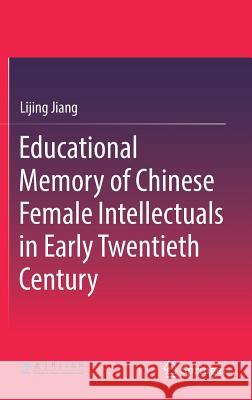Educational Memory of Chinese Female Intellectuals in Early Twentieth Century » książka
topmenu
Educational Memory of Chinese Female Intellectuals in Early Twentieth Century
ISBN-13: 9789811077685 / Angielski / Twarda / 2018 / 417 str.
Kategorie:
Kategorie BISAC:
Wydawca:
Springer
Język:
Angielski
ISBN-13:
9789811077685
Rok wydania:
2018
Wydanie:
2018
Ilość stron:
417
Waga:
0.81 kg
Wymiary:
23.5 x 15.5
Oprawa:
Twarda
Wolumenów:
01
Dodatkowe informacje:
Bibliografia
Wydanie ilustrowane
Wydanie ilustrowane











